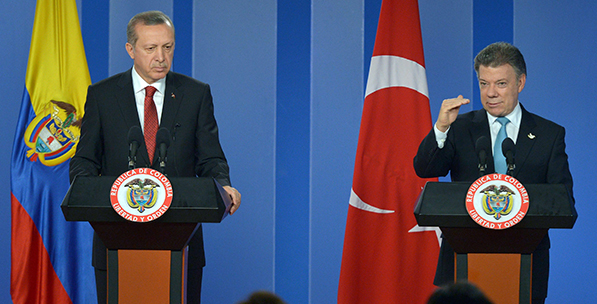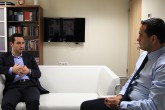In Turkey’s foreign policy openings, Latin America constitutes a vital and strategic region, along with East Asia and Sub-Saharan Africa, in which extensive economic opportunities exist to extend international trade and investment. In this context, the recent visit of President Erdogan to Cuba, Mexico and Colombia was designed as a strategic move to increase bilateral relations with key countries. In recent years, Turkey’s foreign policy and economic strategy follows the pattern of emerging powers in the global political economic system, and Latin America constitutes a critical region in which all emerging powers are trying to be visible. In this context, Turkey declared 2006 as the Year of Latin America, and since 2009 has followed the ‘Commercial Development Strategy towards the Americas,’ which identified Argentina, Brazil, Chile, Cuba, Mexico and Venezuela as key trading partners. This commercial strategy produced impressive results by increasing both imports from and exports to Latin America. But still, the share of commerce with Latin America constitutes only around 2 percent of Turkey’s total commerce, and there is huge potential for expansion. Turkish companies could sell medium- to high-tech machinery, White goods, automobiles, construction equipment and agricultural products and offer their expertise in large-scale infrastructure, transportation, local government, telecommunications and housing projects. Brazil and Argentina especially have been keen to develop their diplomatic and commercial relations with Turkey, but Turkey’s regional vision encompasses intensive relations with a number of Central and South American countries. Mexico, Venezuela, Colombia, Chile, Cuba and Uruguay will be among those countries in the coming months and years that will witness Turkey’s increasing attention.
[Inter-American Dialogue, February 25, 2015]


